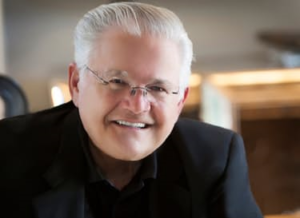President Barack Obama took action Dec. 1 to keep the U.S. embassy in Israel in Tel Aviv for at least another six months.
The Jerusalem Embassy Act of 1995, a pledge to relocate the embassy to Jerusalem, allows the president to postpone implementation “in order to protect the national security interests of the United States.”
Each president since Bill Clinton has signed the waiver every six months, but this time the tradition comes on the heels of Donald Trump’s campaign promise to relocate the diplomatic headquarters “fairly quickly” after taking office.

John Hagee, senior pastor of Cornerstone Church in San Antonio, Texas, is a leading proponent of Christian Zionism, a theological/political movement aimed at influencing U.S. policy on Israel.
Trump told CNN’s Wolf Blitzer in March he would move the embassy as president, just prior to giving a speech at the American Israel Public Affairs Committee annual conference.
“We will move the American embassy to the eternal capital of the Jewish people, Jerusalem,” Trump pledged in the AIPAC speech.
Trump’s daughter, Ivanka Trump, assured Jewish voters in Florida in October that her father would “100 percent” move the embassy to Jerusalem if elected president.
Trump’s adviser on Jewish and Israeli matters said after the election one of the administration’s first moves would be to move the embassy. “It was a campaign promise, and there is every intention to keep it,” Trump adviser David Friedman told the Jerusalem Post. “We are going to see a very different relationship between America and Israel in a positive way.”
Jerusalem is a hot spot in the Israeli/Palestinian conflict. Israel regards the historic city as the eternal capital, but since Israel’s conquest of east Jerusalem during the Six Day War in 1967, all foreign embassies have left for Tel Aviv to avoid appearance of taking sides.
Some U.S. evangelicals known as Christian Zionists believe both the founding of the State of Israel in 1948 and the capture of Jerusalem in 1967 were fulfillment of God’s promises made to Abraham to establish Israel as a Jewish nation forever.
They regard Jerusalem as the eternal and exclusive capital of the Jews and oppose sharing the city with the Palestinians.
Some advocate razing the Dome of the Rock and rebuilding the Jewish Temple on the holy site known both as the Temple Mount and Haram Al-Sharif to fulfill end-times prophecy regarding the Battle of Armageddon and the Second Coming of Christ.
Over the summer Christian Zionists led by Pastor John Hagee’s Christians United for Israel successfully lobbied the Republican Party to “recognize Jerusalem as the eternal and indivisible capital of the Jewish state and call for the American embassy to be moved there in fulfillment of U.S. law” in the GOP platform.
Critics of Christian Zionism say it is bad theology and hinders progress toward a two-state solution to chronic conflict in the Holy Land.
Trump isn’t the first candidate to promise to move the embassy while running for president. Bill Clinton, George W. Bush and Obama all pledged during their presidential campaigns to move the embassy to Jerusalem but after they were elected were convinced by Middle East experts that doing so would harm negotiations for a final settlement between Israelis and Palestinians.
Trump foreign policy adviser Walid Phares appeared less definitive than earlier statements about plans to move the embassy in a BBC interview in early November, saying Trump wants to do it but would not do so unilaterally.
“Many presidents of the U.S. have committed to do that, and he said as well that he will do that, but he will do it under consensus,” Phares said.
